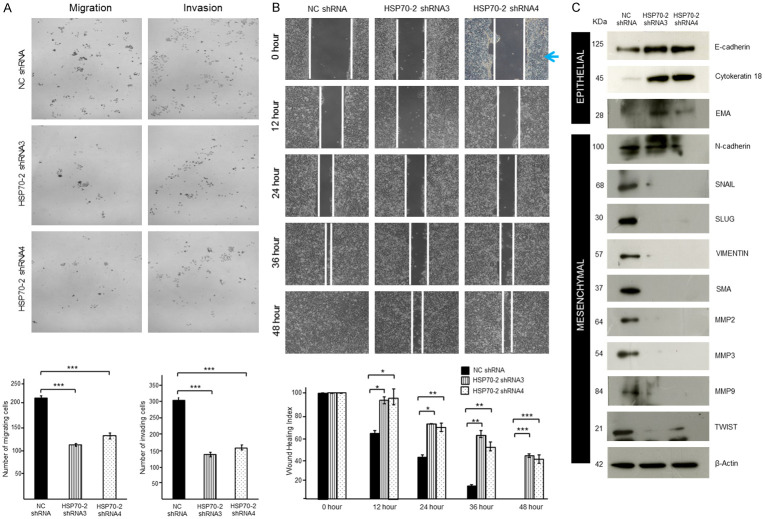In the paper of AJCR0041068R1, a mistake has been found that in the published version of Figure 5, Figure 5B panel at 0 hour of HSP70-2 shRNA3 treatment was inadvertently presented with same image for 0 hour of HSP70-2 shRNA4 treatment during figure assembly during manuscript submission. We have accordingly corrected and replaced the image in Figure 5B panel at 0 hour for HSP70-2 shRNA4 in corrected Figure 5. Change in representative image does not affect the interpretation in Figure 5. The corrected Figure 5 is enclosed. The figure legend is correct as published and is also shown for reference below. The error has no bearings on the interpretation of the results, nor do they influence the conclusions of the work.
Figure 5.
HSP70-2 ablation inhibits cellular motility. A. Phase contrast images and histogram show the significant difference in migration or invasion abilities through insert membrane and matrigel in shRNA3 and shRNA4 transfected cells respectively as compared to NC shRNA transfected cells. B. Representative images show delayed wound healing in shRNA3 and shRNA4 transfected cells as compared to NC shRNA transfected cells from 12-48 hours. Histogram depicts relative wound healing index at different time points. C. Western blot analysis shows the upregulation of epithelial markers, while downregulation of mesenchymal markers. Original magnification ×100, objective ×10. The experiments were performed three independent times in triplicates. Data are represented as mean ± standard error of the mean. *P<0.05, **P<0.001, ***P<0.0001.



